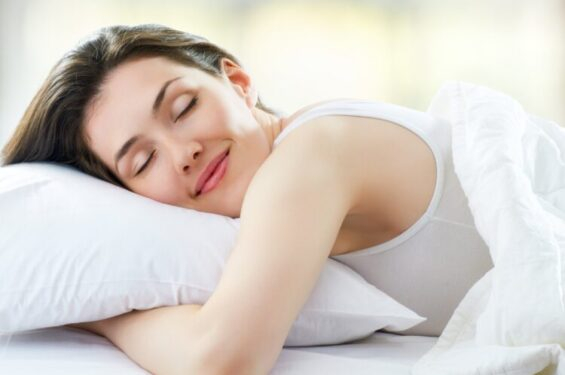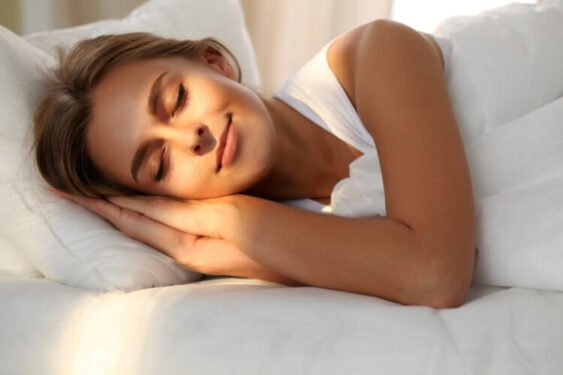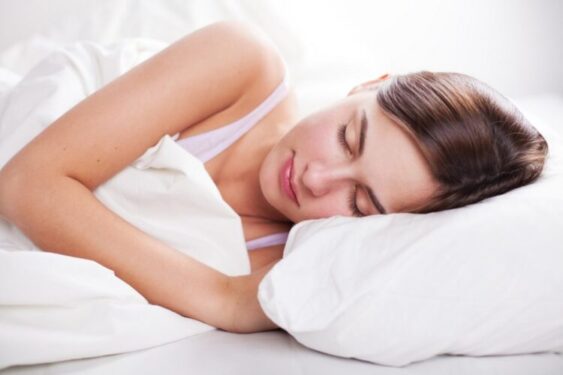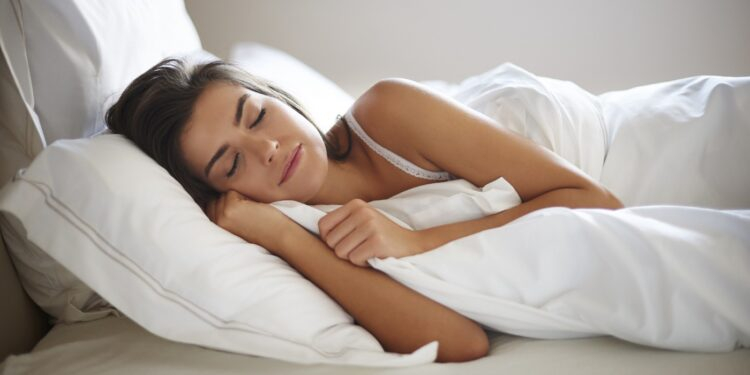How Much Sleep Do You Need? That differs from person to person. Everyone needs sleep, but sleep needs can vary greatly. For example, it makes a lot of difference whether you need 4 or 5 sleep cycles: this can make the difference between waking up tired and resting. What is enough, you will have to find out for yourself.
Understanding how much sleep works can be very helpful. Some people claim that you need 8 hours of sleep a night to function properly the next day without feeling tired. However, there are also people who indicate that 8 hours of sleep is not enough.
Others claim that they never spend more than 5 hours a night in bed, even though they don’t look tired at all and don’t seem to suffer from sleep deprivation. Who’s right? How much sleep does a person actually need?
How Much Sleep Do You Need? Personal need for sleep
The answer, as with so many things, is very nuanced. There are no fixed laws and rules for this kind of business. The need for sleep differs per person and varies greatly. There are people who seem to have enough with 2 or 3 hours of sleep per night; on the other hand, there are cases of people who only feel rested after 12 hours of sleep.
However, it is not the case that there is no sensible word to say about the amount of sleep. There are certain guidelines that you can base yourself on. However, if you want to know exactly how much sleep you need, you will have to find out for yourself. However, it is very useful to have some knowledge of how sleep goes.
The sleep cycle: sleeping in stages
When you fall asleep, it normally starts with a short period of light sleep. This is soon followed by an equally brief period of moderately deep sleep. After this, you end up in a deep sleep: a sleep in which your body and mind are most relaxed. Deep sleep is longer than the previous phases and can last up to 100 minutes (although often this is much shorter).
From deep sleep, you ‘return’ via a moderately deep sleep to light sleep, and then end up in REM sleep for the first time. REM stands for Rapid Eye Movements because its main external feature is that people rotate their eyes very quickly.
However, the eyes are not the only body parts that are active during REM sleep; the body and mind are both very active. Brain activity (measured with an EEG scan) in this phase of sleep is very similar to the brain activity of someone who is awake.
REM sleep is therefore the phase in which people dream. 80% of people who wake up during REM sleep can remember the dream; the other 20% have dreamed, but oddly enough they don’t remember anything about it. The REM period lasts between 10 and 20 minutes. This completes the sleep cycle once.
Short sleepers and long sleepers
how long each stage lasts varies from person to person and night to night. However, that is not what determines the biggest differences in how long people sleep. The difference is mostly in the number of sleep cycles a person goes through during the night.
Short sleepers reach the stage of deep sleep 4 times per night. These are the people who need 4 to 6 hours of sleep per night. Long sleepers experience a period of deep sleep 5 times a night. They sleep 7 to 8 hours a night; sometimes even longer.
How many sleep cycles you need seems to be hereditary. So manipulating the need for sleep has clear limits.
How much sleep do you need as a child?
On average, you can say that babies need to sleep 20 hours a day; small children 12 hours; and adolescents about 9.5 hours. But also among children, you have long sleepers and short sleepers. Many children who sleep for a short time simply need less sleep than their peers. On the other hand, many adolescents in particular suffer from sleep deprivation.
Older people are often said to need less sleep than younger adults. This is partly true. Many elderly people are less active both physically and mentally than when they were still working, for example.
Less activity also means a lower need for sleep. However, on the other hand, many elderly people sleep for an hour or more during the day. And with the hours you sleep during the day, you don’t have to sleep at night anymore. Ultimately, the difference between the sleep needs of younger and older adults is therefore not very large.
Children are said to need more sleep than adults. That’s right: growth hormones are formed during deep sleep: sufficient sleep is therefore important in order to grow well. However, there are also major differences from child to child for children.
How much sleep do you need as an elderly person?
Older people are often said to need less sleep than younger adults. This is partly true. Many elderly people are less active both physically and mentally than when they were still working, for example. Less activity also means a lower need for sleep. However, on the other hand, many elderly people
sleep for an hour or more during the day. And with the hours you sleep during the day, you don’t have to sleep at night anymore. Ultimately, the difference between the sleep needs of younger and older adults is therefore not very large.
Elderly people also have to deal with quite a few ailments as they age, which is why the need for home care Allentown PA services, or ones like them, are needed to help them get through their day-to-day activities. Having someone there can also monitor their sleep and ensure that they are getting the best they can with any physical issues they may have.
How Much Sleep Needs More
A number of things can affect the need for sleep. They make you need more sleep. Some are listed below.
Pain, injury, and illness
When something is wrong with your body due to a wound or illness, the need for sleep is higher. You will feel tired sooner and may also be able to sleep longer than usual. When you give in to this need for sleep, your body will recover faster. Sleep is healing for both wounds and illnesses.
Mental and physical exertion
When you have made a great physical effort, you have used more energy than usual. Your body wants to have this replenished and you are more hungry than usual.
The extra calories you take in must be processed and the nutrients distributed throughout your body. This happens during sleep. So more physical activity means more sleep. On the other hand, you sleep better through regular physical exertion.
Sleep through the season
One person is more sensitive to it than the other, but in general, it can be said that people have a greater need for sleep in winter than in summer.
This is largely caused by the presence and absence of light. If you are tired, sleeping more is not the solution in all cases. There can also be other causes of fatigue. One of them is insomnia: simply not being able to sleep.
Sleep longer with sleeping pills
Sleeping pills can make you sleep longer. However, the use of sleeping pills is in many cases not recommended. Sleeping pills make it easier to fall asleep and stay asleep, but they negatively affect REM sleep and deep sleep, the most important stages of mental health and physical recovery, respectively.
The best way to sleep better or longer is to pay close attention to signals from your body. You can support this by using natural sleep aids, such as valerian, milk, or peppermint tea. A regular sleep rhythm and smart use of light also help to sleep well and to prevent fatigue.























